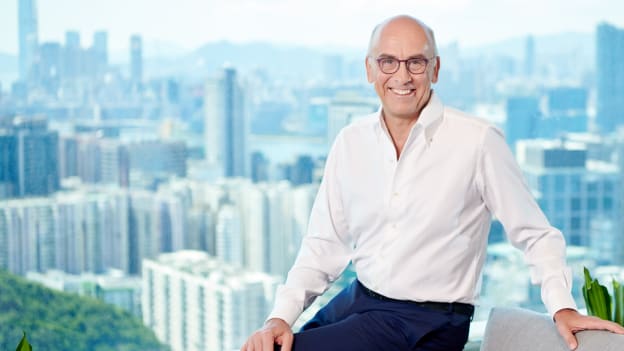When COVID-19 proves a strategy's value: AXA IM

Bruno Guilloton, CEO of AXA IM Asia Pacific, has been in the investment management industry for decades. He spent the last 21 years with AXA IM, moving from Head of Equities to CEO of the Tokyo team, to Asian Regional Director, and even several years as Global Head of Internal Audit. Prior to that he was with Credit Mutuel Finance and Banque Indosuez, both times spending several years leading the equity management team.
People Matters asked him how things are going in the industry and in the company, especially with COVID-19 wreaking havoc on stock markets around the world.
An industry shift towards responsible investing
A company's ESG ratings can be a good indicator of its likelihood of survival in COVID-19, it seems. AXA IM has pursued a responsible investing strategy—an approach that involves evaluating investees' environmental, social, and governance performance alongside their financial results—for the last two decades, and the firm's research along these lines, Bruno said, put them in a good position to observe the difference that ESG performance makes during a crisis like this.
Pointing to a report that AXA IM's ESG research department released in early April, he said:
"Companies with higher ESG ratings have proven more resilient in the coronavirus market crash than those with the lowest. This has been observed for both the stock and the bond markets according to our research paper."
Based on statistics from the report, ESG high performers lost significantly less value in the first quarter of 2020 than low performers. So what does this mean for the investment industry?
"The current challenges have created a real shift of mindset among clients and distributors who will pay more attention to the way investment products are managed and promoted," Bruno said—and this, he added, is an opportunity for investment managers who focus on responsible investing and ESG performance.
A different approach to client interactions as well
COVID-19 is not just changing client expectations and the industry's emphasis on sustainable investments, it is also changing the way investment managers work.
"In my position as Regional Head covering our presence in Australia, Hong Kong, Singapore, Shanghai, Seoul and Mumbai, I used to travel once every two to three weeks. With travel bans now in effect, I have not been able to meet with staff members and clients alike. This is especially important in Asia, where personal interactions are highly valued," Bruno said.
He foresees a new client interfacing era for the industry, one where digital tools and platforms will be more widely adopted and people have to think differently about how they maintain relationships and stay connected to each other.
Internally, the AXA IM team is already making inroads on their way of working. "The lack of physical meetings has not resulted in a drop in interaction levels for us," Bruno said. "I am in touch with all my direct reportees several times a day and ensure that our partners and clients are also contacted regularly by our teams or myself."
Some communications did take a longer time to reinstate than others, though. Company-wide meetings stopped for two months when the firm moved to a work-from-home policy in late January, Bruno recounted: "It was the first time in early April that we connected with all our employees from across the Asia Pacific through a video conferencing tool. It was very encouraging to see everyone’s faces again after a while and the feedback on such interactions has been positive, underscoring the importance of keeping close contact when people work remotely."
The advantage of being an early adopter
The transition to WFH was a smooth one largely because AXA IM Asia introduced their work-from-home policy back in November 2017, meaning that they have had over two years' head start in building up their IT capabilities, supporting policies, and a workplace culture that is familiar and comfortable with WFH. So when lockdown and quarantine orders went into effect around the region, adjusting the working arrangements was an easy and straightforward task, Bruno said—right down to having the equipment and software ready to go.
In fact, WFH has gone very well for the entire company, he said. The management system he and his leadership team introduced has so far been successful in keeping all teams informed and up-to-date, from the entire Asia Executive Committee to the individual departments.
"We also get great support from our HR and learning teams who have rolled out a series of training sessions on how to manage mental health during these uncertain times and on managing wellbeing and building resilience," he added.
"Beyond the current crisis, we might expand our remote working practice going forward, as it worked quite well not only for the organization but also for the staff."
Will there also be changes to the business strategy? Not likely, he said—possibly because the pandemic, in highlighting the performance of companies with good ESG ratings, has actually proven the value of their existing focus. "Asia is a key focus area for us and we will continue to invest in the region in line with our long-term strategic plan," he said. "In the short-term, we have made slight adjustments to adapt to the current environment, but this doesn’t change our vision for the region."
















